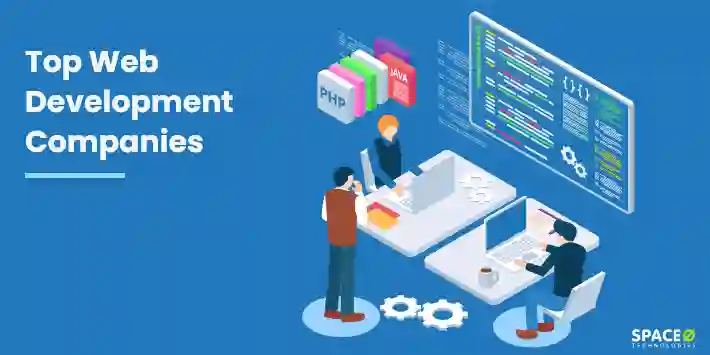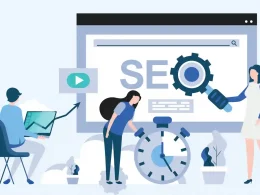In the sprawling digital landscape, your website acts as the flagship of your online presence, a virtual representation of your brand. The creation and maintenance of this digital domain require not just skill but a deep understanding of your business’s unique needs and aspirations. This makes choosing the right web development partner not just important, but essential. In this guide, we’ll walk you through the steps of finding your ideal web development partner, ensuring your digital presence is not just built, but crafted to perfection.
Understanding the Need for a Web Development Partner
The world of web development is vast and complex, encompassing a range of skills from graphic design and coding to user experience and search engine optimization (SEO). A web development partner brings expertise in these areas to the table, transforming your vision into a digital reality. They don’t just write code; they build the very foundation of your online identity.
Defining Your Requirements
Before embarking on the search for a web development company, it’s crucial to have a clear understanding of your project requirements. Consider the following:
- Purpose of the Website: Is it an e-commerce platform, a portfolio, a blog, or a corporate website? The purpose will significantly influence the design and functionality.
- Target Audience: Who are you trying to reach? A website for teenagers will look and function very differently from one aimed at corporate clients.
- Key Features and Functionality: List out the must-have features, such as shopping carts for e-commerce sites, or multimedia support for content-heavy sites.
- Budget: Determine your budget for the project. This will guide you in shortlisting companies that can deliver within your financial constraints.
- Timeline: Have a realistic timeline for your project. This helps in managing expectations and ensures timely delivery.
Searching for the Right Partner
1. Portfolio Analysis
A company’s portfolio is a window into its capabilities and style. Look for diversity in their projects, which indicates a broad skill set. Assess if their design sensibility aligns with what you envision for your own website.
2. Technical Expertise
Web development is a rapidly evolving field. Ensure your potential partner is adept in the latest technologies and follows best practices in web development, including responsive design, load times, and SEO considerations.
3. Client Reviews and Testimonials
Reviews and testimonials give you insights into the company’s reliability, communication style, and ability to deliver on promises. Look for feedback on platforms like Clutch, Glassdoor, or even Google.
4. Services Offered
Some web development companies offer a full range of services including design, development, SEO, and ongoing maintenance, while others may specialize in just one or two areas. Choose a partner whose offerings match your needs.
Evaluating Potential Partners
Once you’ve shortlisted a few companies, it’s time to evaluate them based on several critical criteria:
1. First Impressions
Your initial interaction with a company can be very telling. Are they prompt in their responses? Do they show genuine interest in your project? First impressions often set the tone for the entire project.
2. Understanding Your Vision
A great development partner should be able to understand your vision and provide valuable insights. They should be asking you questions about your goals, audience, and preferences.
3. Technical Competence
Discuss the technical aspects of your project. Make sure they are comfortable with the technologies required for your website. Ask about their experience with similar projects.
4. Pricing Structure
Get a clear understanding of the pricing structure. Is it project-based or hourly? Are there any hidden costs? Understanding this upfront can save you from unexpected expenses later.
5. Communication and Project Management
Effective communication is key to the success of any project. Inquire about their project management tools and communication protocols. Regular updates and transparency are crucial.
6. Post-Launch Support
A website is not a one-time project; it requires ongoing maintenance. Discuss their approach to post-launch support and maintenance. Are these services included in the package or charged separately?
Making the Decision
When making your final decision, consider the following:
- Alignment with Your Vision: Choose a partner who understands and aligns with your vision and can translate it effectively into a digital format.
- Balance Between Quality and Cost: While budget constraints are real, opting for the cheapest option may not always be wise. Balance cost with the quality of work and services offered.
- Long-term Relationship Potential: Ideally, your web development partner should be someone you can work with in the long term. Consider their willingness to provide ongoing support and adapt to your evolving needs.
The Road Ahead
Once you’ve chosen your web development partner, the real journey begins. Maintain open lines of communication, provide timely feedback, and be actively involved in the process. Remember, a successful website is a collaborative effort.
Conclusion
Selecting the right web development partner is a critical decision that can shape the future of your online presence. It requires careful consideration of your own needs and thorough evaluation of potential candidates. By taking the time to find a partner who not only has the technical skills but also understands and shares your vision, you set the stage for a successful digital project. In the digital forge, it’s the synergy between your vision and their expertise that will craft a website that’s not just functional, but a true embodiment of your digital aspirations.











